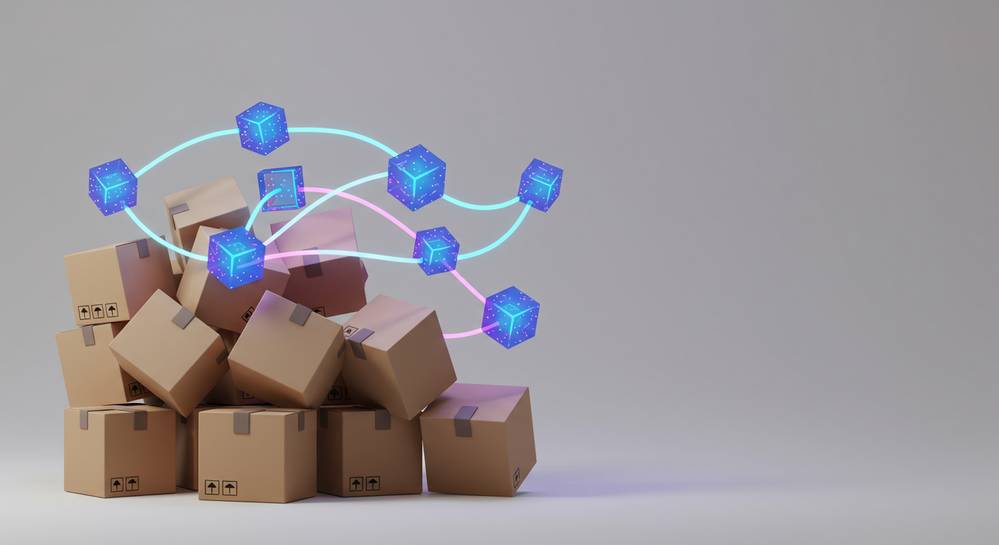In today’s global economy, supply chains are more complex and fragmented than ever, often leading to a lack of transparency, delays, and costly errors. These challenges directly impact both businesses and consumers. The solution lies in a technology capable of creating a single, shared source of truth. This is where blockchain in supply chain emerges as a transformative force, promising to rebuild trust and efficiency from the ground up.
Understanding the challenges in traditional supply chains

Traditional supply chains operate on fragmented, siloed systems. Each participant, from the manufacturer to the logistics provider, maintains separate records. This fundamental disconnect creates a landscape riddled with inefficiency and risk. The lack of a single, shared source of truth makes tracking a product’s journey in real-time nearly impossible. This opacity is a critical failure in an era demanding supply chain transparency.
The consequences of this outdated model are severe and costly. Manual data entry and paper-based processes lead to significant delays, while communication gaps can halt shipments for days. These inefficiencies inflate administrative costs and create vulnerabilities. Issues like counterfeit goods, theft, and difficult product recalls stem directly from this lack of traceability. Centralized databases also present a major security risk, a problem that could be addressed with a secure distributed ledger technology. These challenges erode both profit margins and consumer trust.
How blockchain technology brings transparency and trust

Blockchain technology fundamentally alters the supply chain paradigm by introducing a shared, immutable digital ledger. Instead of siloed records, all authorized participants view a single, synchronized version of the truth. This approach to using blockchain in supply chain management directly builds trust and transparency. Its power lies in three core features that address old challenges head-on.
- Decentralization: There is no central owner of the data. Every authorized member holds a copy of the ledger, eliminating single points of failure and preventing any one entity from manipulating information.
- Immutability: Once a transaction is recorded, it is cryptographically sealed. This makes it permanent and tamper-proof, creating an unchangeable audit trail for every item from origin to consumer.
- Smart Contracts: These are self-executing programs that enforce agreement terms. For example, a smart contract can automatically release payment once a shipment is verified, removing delays and disputes.
Key benefits of integrating blockchain in supply chains
By addressing the core weaknesses of traditional systems, integrating blockchain delivers significant, measurable advantages. A shared, trusted record of events unlocks new levels of operational excellence and reliability. The benefits of blockchain are transformative for supply chain management, impacting everything from speed to security.
- Enhanced Traceability: Companies can track products from origin to consumer with pinpoint accuracy. In the food industry, this means identifying contamination sources in minutes, not days, preventing widespread recalls.
- Improved Efficiency: Automating processes with smart contracts and reducing manual paperwork cuts administrative costs. It accelerates the movement of goods, from customs clearance to final delivery.
- Increased Security: The cryptographic and decentralized nature of blockchain makes it exceptionally difficult to introduce counterfeit goods or tamper with data.
- Greater Collaboration: With all parties working from a single source of truth, trust is built into the system, fostering better relationships.
For example, a luxury brand can use blockchain to provide customers with a verifiable certificate of authenticity, showing the entire history of an item from the workshop to the boutique.
Challenges and future outlook for blockchain adoption

Despite its immense potential, widespread blockchain adoption faces significant hurdles. Key challenges include the technical complexity of integrating with legacy systems like ERPs and the high initial investment costs. Establishing industry-wide standards for data exchange is another major barrier. Finally, achieving full participation from all partners, including smaller suppliers, remains a critical operational obstacle.
The future is collaborative and integrated
The future outlook for blockchain in supply chains is bright, pointing towards greater ecosystem collaboration. We expect the rise of industry-specific consortia to establish common platforms and rules. As the technology matures, it will offer improved scalability and become more user-friendly. The true revolution will be its integration with IoT for real-time monitoring and AI for predictive analytics, creating truly intelligent and resilient supply chains.
The integration of blockchain technology is not merely an upgrade; it is a fundamental redesign of how supply chains operate. By creating a transparent, immutable, and efficient framework, it builds unprecedented trust among all participants and delivers clear value to the end consumer. To explore tailored strategies for your business, connect with the experts at Solution Of Blockchain and start building a more resilient supply chain today.
